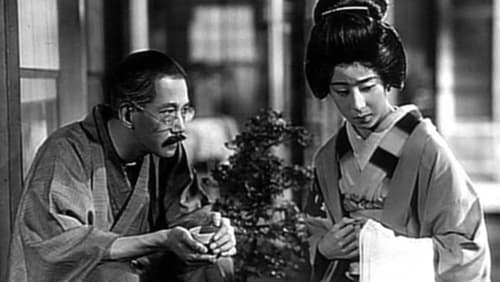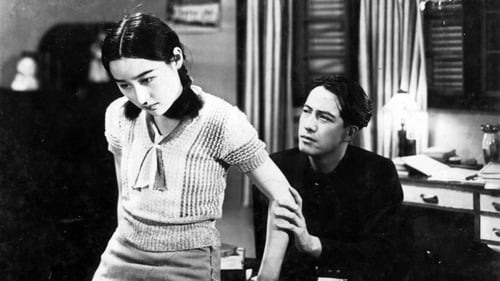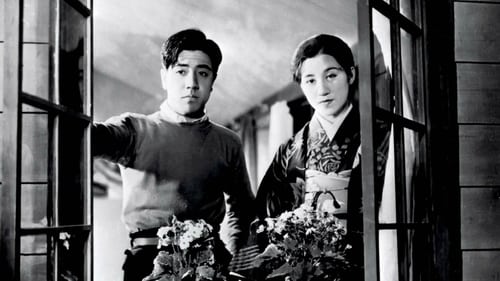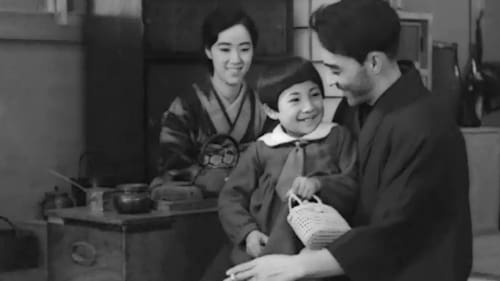
A story of a store that makes Tabi socks.

Ida, Superior Private
Following a young man through his childhood ambition to follow his father into the military to losing his life in combat in China.

A student
Otoku asks her brother Bunkichi to speak with her son Seiichi, a young man for whom sacrificed everything but who now seems to be headed for a wastrel life. Bunkichi admonishes the boy to study harder, but it seems his uncle's advice may already be too late.

Yosaku
Family drama. A middle-aged father has just married off his third daughter, but still has his nine year old son to raise whom he resents as he was unwanted. (British Film Institute)

Domestic comedy involving a strong wife and a "henpecked" husband taking place in a family-run judo school.

A Japanese comedy from the end of the silent era (it has music) from a popular series. A feud, a practical joke and romance are the set up for some great comedy and drama from a team of distinctive appearance who are exploiting their silent cinema styles to the full.

Keitaro is a law student and Yaeko s a high school girl. They are neighbors, and their friendship is starting to develop into something more romantic. Then, Yaeko's sister Kyouko has a breakup with her husband and returns home. Kyouko is clearly interested in Keitaro and Yae becomes anxious.

Bartender
El último film mudo de Naruse cuenta la vida de una camarera, Sugiko, cuya vida toma un brusco giro tras ser atropellada por un rico hombre de negocios.

A melodrama by noted auteur and father of director Yoshitaro Nomura, Hotei Nomura. This is apparently the first adaptation of Izumi Kyoka's The Romance of Yushima.

A young couple is harrased by an uncle.

Customer at the spa
"The Dancing Girl of Izu" tells of the story between a young male student who is touring the Izu Peninsula and a family of traveling dancers he meets there, including their youngest girl. The student finds the naïve girl attractive even though he eventually has to part with the family after spending memorable time together.

Gen the Pelican
Shunsaku Atsumi, su madre Kishiyo, su aburrida esposa Masako su encantadora hijita Shingeko viven juntos en una confortable casa adquirida con los beneficios que les proporciona su boyante negocio de pescadería. No obstante, tan pintoresco cuadro no carece de trapos sucios. Nueve años antes, la verdadera madre de Shingeko, Tamae, dejó a Shunsaku y a su hija para marchar a Norteamérica. Un día, Shunsaku es acusado de un crimen, y Tamae regresa a casa convertida en una actriz de éxito en los Estados Unidos y reclama la custodia de su hija. Entretanto, en la empresa de Shunsaku, los trabajadores y la dirección se hallan enfrentados por motivos salariales. Tamae se ofrece para sacar a la compañía de sus apuros con su propio dinero, pero Shunsaku se niega en redondo. Shunsaku ingresa en prisión y la compañía se desliza hacia la quiebra...

Kozo Ikariko
This 1932 adaptation is the earliest sound version of the ever-popular and much-filmed Chushingura story of the loyal 47 retainers who avenged their feudal lord after he was obliged to commit hara-kiri due to the machinations of a villainous courtier. As the first sound version of the classic narrative, the film was something of an event, and employed a stellar cast, who give a roster of memorable performances. Director Teinosuke Kinugasa was primarily a specialist in jidai-geki (period films), such as the internationally celebrated Gate of Hell (Jigokumon, 1953), and although he is now most famous as the maker of the avant-garde silent films A Page of Madness (Kurutta ichipeji, 1926) and Crossroads (Jujiro, 1928), Chushingura is in fact more typical of his output than those experimental works. The film ranked third in that year’s Kinema Junpo critics’ poll, and Joseph Anderson and Donald Richie noted that 'not only the sound but the quick cutting was admired by many critics.










